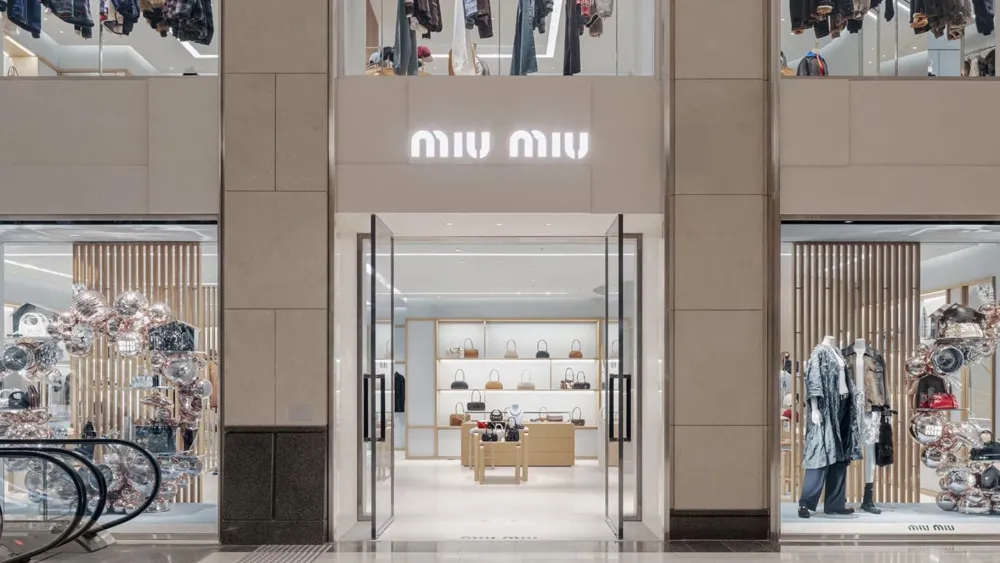
Retailers could bear the brunt of Malaysia’s proposed luxury tax
Introducing a tax on luxury items may send Malaysian consumers, tourists flying off on shopping sprees abroad.
Malaysia is working on establishing itself as a “shopping haven” for tourists with measures in place to make shopping in the country tax-free. However, the tables could turn on the retail sector with the government’s proposal to impose a tax on luxury goods. Retailers worry that such a move may send consumers flying off to neighbouring countries to shop there instead.
The Malaysian government has disclosed its plan to introduce a luxury tax with a certain limit on specific types of goods that include luxury watches and fashion items in a bid to expand its means of revenue collection.
“There is a need to introduce new taxes due to the constraints on the Government’s revenue. A growing economy, where people are earning more money and businesses are performing better, will result in higher tax collection and revenue,” Farah Rosley, Malaysia Tax Leader and Partner, Ernst & Young Tax Consultants Sdn. Bhd., told Retail Asia.
“Whilst there will be a potential increase in the Government’s revenue, the projected benefits would need to be weighed against any impact to the retail sector, including tourist spending,” Rosley said.
She noted that other countries such as China, Singapore, Indonesia, and the Philippines have also implemented such taxes.
Pua Wee Meng, consumer industry leader at Deloitte Southeast Asia, said there is a high chance that the government will push through with the proposal “in support of higher social and development spending.”
According to Teresa Chong, head of consumer market at KPMG in Malaysia, the measure is being proposed at a time when consumers have higher disposable income with tax reliefs and assistance given during the pandemic.
What may be overlooked in this premise, is that the positive performance of the retail sector was due to pent-up demand, she said.
A ‘lose-lose’ proposal
In a joint statement, Malaysian retail groups are urging the government to rethink and withdraw the proposal for a luxury tax as this could negatively affect the performance of the retail sector.
The retailers – BBKLCC Tourism Association Kuala Lumpur, Batu Road Retailers Association, Bumiputra Retailers Organisation, Federation of Malaysia Business Associations, Industries Unite, Malaysia Retailers Association, Malaysia Retail Chain Association, and the Malaysia Shopping Malls Association – said the luxury tax proposal may make pricing in the country “non-competitive” and deter tourists and locals from shopping in the country.
“This is a lose-lose proposition – losing foreign tourist arrivals and losing Malaysians from buying locally, coupled with the loss of foreign exchange. Even if a mechanism can be designed for foreign tourists to claim back such luxury taxes, Malaysians would still be enticed to do their shopping overseas,” they said.
When the country’s duties and taxes on shopping were removed, around 37.6% of tourists’ receipts came from foreign exchange earnings from shopping in 2018 as this made the prices in Malaysia attractive. Prices could match that of the immediate competitor for tourist dollars and foreign exchange, such as Hong Kong, Indonesia, Thailand, and Singapore.
They pointed out that countries wanting to become shopping havens have, in fact, removed their taxes.
Retailers added that the proposal could also encourage the growth of black market operation, the same with penalising duties and taxes on cigarettes and liquors. Only “big-ticket ostentatious products” should be considered for the proposal such as sports cars, racing motorbikes, yachts, and aeroplanes, they suggested.
“We advocate that our tax policy should not deter and punish success due to entrepreneurship and risk-taking to nurture start-ups and business formation. A holistic view should be taken that will balance between risk and reward; and the flow-through multiplier effect of business activities that contributes to the economic growth of the nation,” the retailers said.
“Thus, we urge the government to judiciously evaluate the entire spectrum of wealth tax, capital gains tax and luxury tax to ensure that such taxes do not deter entrepreneurship and even drive such enterprising individuals and companies to leave Malaysia to venture into other countries instead, and creating a brain drain loss in its wake,” they added.
Allaying concerns
Chong said the effect of the measure could not be assessed yet as there are no final specifics, according to analysts. But to address the concerns of businesses, the scope of luxury goods under the proposal needs to be determined.
“Among other things, it needs to be defined what constitutes ‘luxury goods’, as it can be subjective, depending on the purchasing power of the individual,” she said.
The government should carefully consider the types of goods that will be covered in the proposal, said Rosley. And they should not include essential items for the public or goods that are needed by businesses, she said.
Pua and Chong both said there has to be a clear mechanism for how the tax will be collected whether it be at the import or retail level. Pua added the taxable amount and threshold should also be stated.
For Chong, the lack of a refund scheme could also affect the attraction of foreign tourists to the country. Domestic buyers, likewise, would be compelled to travel overseas where they can purchase goods at lower prices due to the Goods and Services Tax/ Value-Added Tax refund scheme in overseas countries, if the luxury tax is imposed at a very high rate.
“To ensure no one category of taxpayers is burdened by this proposal, it would help for the government to engage with and obtain feedback from those potentially affected such as the retailers, consumers and related industry players such as those from the tourism industry,” Chong said.
Rosley added that retailers should be given ample time for the implementation of the new tax and ensure that the compliance mechanisms that include registration and collection processes will be easy to meet.
Learning from others
There are issues that could be addressed by looking at the experiences of other markets that implemented a luxury tax, Pua said.
He cited China which saw an increase in “daigou” or individuals who go abroad to buy luxury items for resale when a higher luxury tax on watches was imposed.
In the US, the implementation of a 10% luxury tax in 1990 to address federal deficits resulted in the loss of 25,000 jobs in the local yacht industry and led Congress to remove it after two years as it failed to meet the objective.
“There are also possible ripple effects on retail which should not be overlooked such as the effect on rental reversion rates, the possible rise of black market goods, and the negative impact on tourism receipts as foreign tourists will be enticed instead to shop in neighbouring countries as well as Malaysians saving up to do their luxury purchases during overseas trips,” Pua said.
“Notwithstanding the downside risks discussed, the government will need to work with business stakeholders to assess its impact and actively engage with retailers on possible mitigating actions,” he said.
At present, the government has already started on such moves as the allocation of US$56.3m (RM250m) in the 2023 budget for the tourism sector, the plan to have a luxury tax rebate mechanism for tourists, and developing more duty-free centres, Pua added.
Retail outlook
In 2022, retail sales in Malaysia increased 19.6% year-on-year to reach $360.6b (RM1.6t), said Chong, citing data from the Department of Statistics Malaysia.
She said this was due to the rise in tourist arrivals, robust consumer spending, and a resilient labour market. This “upward momentum” in the retail sector has eased inflationary pressures.
Rosley, on the other hand, sees the cost of operations and materials, with a weaker ringgit against the US dollar, would affect the retail prices and, in turn, the consumer spending power. The reduction of the personal income tax rate by 2% for the bottom-40 and middle-40 income categories could encourage domestic spending.
But the sector’s growth is expected to be “much more muted” in 2023 due to economic headwinds and uncertainties such as high cost of living, inflation and the recent events in the financial services industry, Pua said.
“Although several measures were announced by the Malaysian government during Budget 2023 to provide subsidies and incentives to support the cost of living, consumers are expected to be cautious in spending under such conditions,” he said.
“At the same time, the increasing costs of doing business have not abated – although we saw an increase in minimum wages last year, the acute shortage of labour within this sector continues, along with the high operational cost that impact supply chains. These are factors which will continue to affect retailers in 2023,” he added.
$1 = RM4.44



















 Advertise
Advertise







